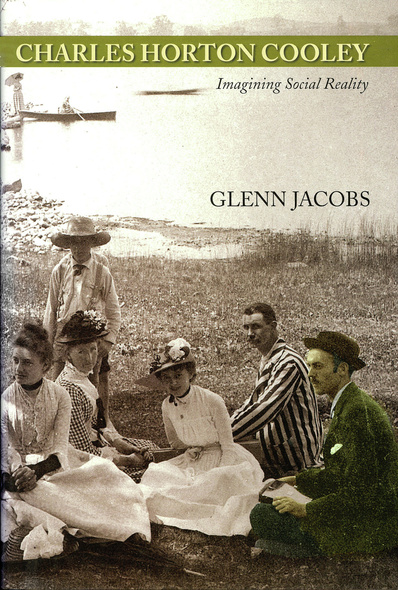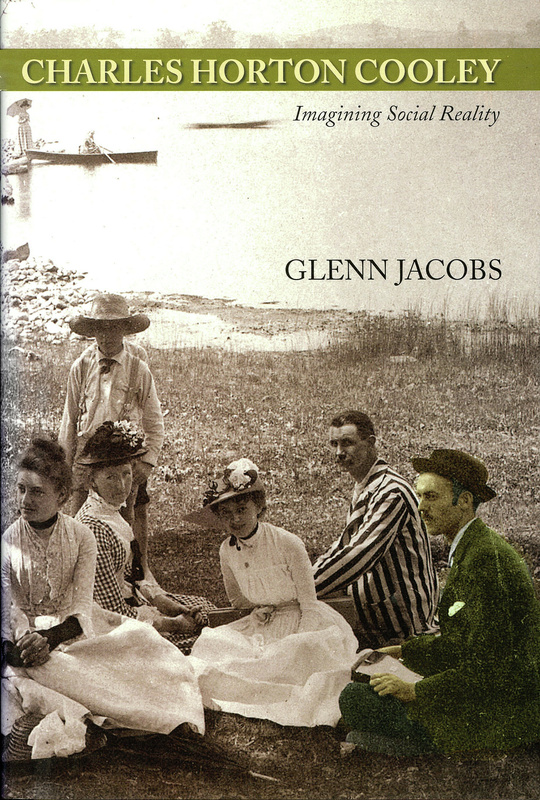Our shopping cart is currently down. To place an order, please contact our distributor, UTP Distribution, directly at utpbooks@utpress.utoronto.ca.
One of the founders of sociology in the United States, Charles Horton Cooley (1864–1929) is perhaps best known for his concepts of the looking-glass self and the primary group. But according to Glenn Jacobs, he also deserves to be remembered as the first scholar of his generation to develop a viable concept of the social. Characterizing Cooley as an "exceptional exceptionalist," Jacobs shows how his unique adaptation of Adam Smith's liberalism and his rejection of Herbert Spencer resulted in a notion of the social that set him apart from the burgeoning professional social science movements of his time.
In surveying Cooley's thought, Jacobs emphasizes the role that the sociologist's own "inner work" played in the development of his idea of the self. Particularly important in this respect was Cooley's deep commitment to the essay tradition, a literary genre distinguished by autobiographical reflection and conversational discourse that he described as "a society of men speaking to each other across the ages." A close reading of the journal that Cooley kept for over forty years reveals how he worked out many of his key concepts and theories in his personal writing. It was through this exercise that he developed his distinct literary-aesthetic perspective, eventually resulting in a methodology that stands out for setting qualitative sociology on an epistemological foundation.
In a chapter devoted to Cooley's qualitative approach, Jacobs analyzes his vivid ethnographic observations of the Lower East Side Jewish ghetto and Hull House in Chicago, as well as his reflections on the death of his daughter and his own impending death in 1929. Another chapter looks at Cooley's little-known writing on economic sociology, focusing on his understanding of the market as an institution.
By examining the full range of Charles Horton Cooley's contributions to belles lettres as well as social science, often allowing him to speak for himself, Jacobs makes a strong case for elevating Cooley's rank among the most influential American sociologists.
In surveying Cooley's thought, Jacobs emphasizes the role that the sociologist's own "inner work" played in the development of his idea of the self. Particularly important in this respect was Cooley's deep commitment to the essay tradition, a literary genre distinguished by autobiographical reflection and conversational discourse that he described as "a society of men speaking to each other across the ages." A close reading of the journal that Cooley kept for over forty years reveals how he worked out many of his key concepts and theories in his personal writing. It was through this exercise that he developed his distinct literary-aesthetic perspective, eventually resulting in a methodology that stands out for setting qualitative sociology on an epistemological foundation.
In a chapter devoted to Cooley's qualitative approach, Jacobs analyzes his vivid ethnographic observations of the Lower East Side Jewish ghetto and Hull House in Chicago, as well as his reflections on the death of his daughter and his own impending death in 1929. Another chapter looks at Cooley's little-known writing on economic sociology, focusing on his understanding of the market as an institution.
By examining the full range of Charles Horton Cooley's contributions to belles lettres as well as social science, often allowing him to speak for himself, Jacobs makes a strong case for elevating Cooley's rank among the most influential American sociologists.
This is an important book, brilliant in places, well-crafted, lovingly nuanced in its treatment of Cooley and his place in social theory and American letters. Glenn Jacobs offers a bold, imaginative reading that restores Cooley's place in the American studies canon, as well as his place in American social theory.'—Norman Denzin, University of Illinois at Urbana-Champaign
'A fine piece of scholarship. The book makes a unique contribution to our understanding of Cooley, filling in another part of the mosaic that represents what we know today about the classical theorists.'—Mary J. Gallant, Rowan University
Glenn Jacobs is associate professor of sociology at the University of Massachusetts Boston, where he has taught since 1976.






